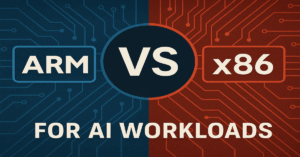
Why the world needs to think beyond speed and cost The Blind Spot in AI’s Big Moment The UK government recently announced new plans for AI infrastructure. Other countries are doing the same, working urgently to build bigger data centers, expand AI capacity, and secure Sovereign and Confidential AI capabilities. Whenever these announcements happen, the […]


